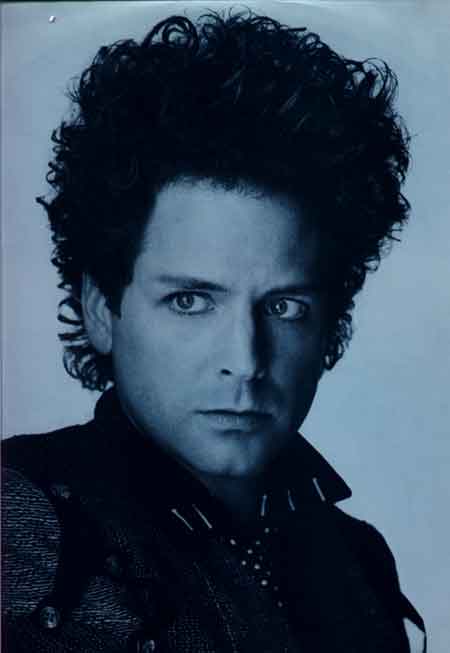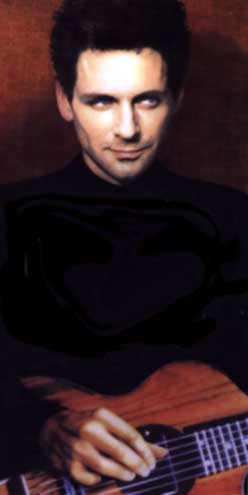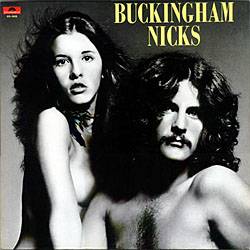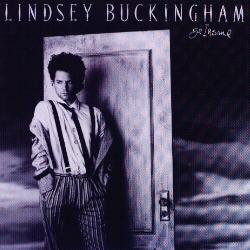 |
 |
 |
|
This site is dedicated to the much under valued LINDSEY BUCKINGHAM, the architect of Fleetwood Mac's Rumours era sound and creator of three magnificent solo albums |
||
|
|
||
|
Solo albums marked the beginning of the end for the Beatles. So when Fleetwood Mac's Stevie Nicks recorded her album Bella Donna and Mick Fleetwood himself made The Visitor, the music world buzzed with speculation. Was the Big Mac disintegrating into a bunch of McNuggests? Rumors heated up again last fall when the band's artistic wellspring, Lindsey Buckingham, 32, released his own first LP, Law and Order. Many wondered if the title of his Top 10 single meant what it suggested Trouble. The answer seems to be: Not yet. Fleetwood Mac has long been rock's turbulent version of The Young and the Restless, and Buckingham swears it's all just a harmless way of blowing off a little creative steam. "With the band," he explains, "there are five distinct personalties, lots of second guessing, and it's tough to get from point A to point B." (Neither of the other two band members, John McVie and his ex-wife, Christine, has gone solo since joining Fleetwood Mac.) Buckingham is generally credited with transforming the blues-rock band into a commercial powerhouse. If praised for the 16 million sale of 1977's Rumours, though, he also shouldered much of the blame for Tusk, a double disc white elephant that was critically acclaimed but peaked at "only" four million in 1980. After a 76 city world tour, the band decided in needed time off. "John went on a cruise," recounts Lindsey. "Christine just layed out in the sun. But three weeks off and I go nuts. Working makes me happy." He began his solo project in a studio in his garage. It was a singular undertaking indeed. Buckingham sang, played drums, guitar and keyboards, and supervised the recording. "It was like a painter working on a canvas," he says. "When I work with Fleetwood Mac it's more like making a movie." Artistic independence does have its price, though. "Doing all the production and playing nearly all the instruments," he says, "you begin to lose your objectivity as to what's good." (Lindsey eventually called in Fleetwood Mac engineer Richard Dashut to co-producer in the studio.) Of the album's title, he says, "Rock is usually about escapism, lack of discipline and promiscuity. Law and Order is about the sense of personal order in your life. If there are songs about a special, stable relationship, it's because that's what I have." He means his five-year romance with Oklahoma-born Carol Harris, 28, a part-time fashion model. They met in a Los Angeles recording studio in 1976 where Carol was a receptionist, and they moved in together the following year. Buckingham's previous paramour, of course, was Nicks. Their celebrated breakup took place in the mid-'70s at the same time the McVies were divorcing. Having gotten through "years of pain," Lindsey says he and Stevie are able to maintain a stable working relationship. After the Tusk session, though, Nicks complained that it was "like being a hostage in Iran and, to an extent, Lindsey was the Ayatollah." Says Buckingham with a smile, "I did have definite ideas." On their relationship outside the studio, he reflects, "I don't think we'll ever be good friends. There was a lot of passion, but not a lot of camaraderie." Is he bothered by the fact that Stevie's solo album has sold two million copies? "It's easy to feel envious of someone who gets as much fan mail and sells as many records as Stevie," he confesses. "Obviously my stuff is a little more off the wall, but I like my album better than hers." One of three sons of a coffee company executive father, Lindsey grew up in the San Francisco suburb of Atherton. "I was one of the tons of guys who ran out and got a guitar when Elvis came along," he recalls. As a junior in high school he met Nicks, who was a senior. A year later they started playing in a band called Fritz, became lovers and soon split off to make one album as a duo, Buckingham Nicks. Though the LP died in the market, it caught the ear of Fleetwood, who had founded Mac in 1967. Looking for someone to replace the just-departed Bob Welch, he invited both Nicks and Buckingham to join in 1975. "I guess it was a good thing," understates Lindsey. His tunes, such as Monday Morning and Go Your Own Way, helped Mac become one of the best-selling groups of all time. Today Lindsey and Carol live in a three-bedroom house in L.A.'s starry Bel Air. They're obviously taking their time about setting a wedding date; Lindsey says only, "We've discussed it." As he finishes mixing the next all Mac album, scheduled for release this spring, Lindsey is planning a brief solo tour of small clubs and will then join Mac for a national tour. He is optimistic. "Now that we have these other outlets, it's easier to do things as a group," he says. "I wouldn't be surprised if we stay together a long while." by David Sheff Feb ,82 |
|
|
|
|
|
|
|
|
|
|||



